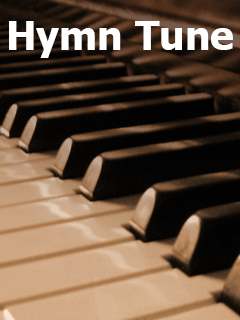- |
User Links
WIR PFLÜGEN

WIR PFLÜGEN
Composer: J. A. P. Schulz (1800)Published in 333 hymnals
Printable scores: PDF, MusicXML
Audio files: MIDI, Recording
Composer: J. A. P. Schulz
 Johann Abraham Peter Schulz Germany 1747-1800. Born at Luneburg, Germany, son of a baker, he attended St Michaelis school in Luneburg and studied organ, then the Johanneum from 1759-1764. In 1765 he was a student of composer, Johann Kimberger, and then taught in Berlin himself. In 1768 Kimberger recommended Schulz for the position of music teacher and accompanist to the Polish Princess Sapieha Woiwodin von Smolensk. Schulz moved to Berlin and traveled with her for three years performing throughout Europe, where he came in contact with many new musical ideas. He married Catharina Maria Gercken, and they had a daughter, Celle. He served as the conductor of the French Theatre in Berlin from 1776-1780. From 1786-1787 he was the Kapellme… Go to person page >
Johann Abraham Peter Schulz Germany 1747-1800. Born at Luneburg, Germany, son of a baker, he attended St Michaelis school in Luneburg and studied organ, then the Johanneum from 1759-1764. In 1765 he was a student of composer, Johann Kimberger, and then taught in Berlin himself. In 1768 Kimberger recommended Schulz for the position of music teacher and accompanist to the Polish Princess Sapieha Woiwodin von Smolensk. Schulz moved to Berlin and traveled with her for three years performing throughout Europe, where he came in contact with many new musical ideas. He married Catharina Maria Gercken, and they had a daughter, Celle. He served as the conductor of the French Theatre in Berlin from 1776-1780. From 1786-1787 he was the Kapellme… Go to person page >Tune Information
| Title: | WIR PFLÜGEN |
| Composer: | J. A. P. Schulz (1800) |
| Meter: | 7.6.7.6 D with refrain |
| Incipit: | 51155 31543 21556 |
| Notes: | Refrain from the melody "Claudius" |
| Key: | B♭ Major/G Major or modal |
| Copyright: | Public Domain |
Alternative Tunes
Notes
WIR PFLÜGEN (named after the incipit of Schulz’s original third stanza) was published anonymously in the Hanover collection Lieder für Volksschulen (1800). But it was credited to Johann A. P. Schulz in Lindner’s Berlin songbook Jungenfreund (1812). The harmonization by John B. Dykes (PHH 147) was first published in the 1861 edition of Hymns Ancient and Modern.
The tune is noted for its opening phrase, which encompasses a very wide range, but that doesn’t appear to discourage most congregations from singing it. Sing the stanzas in unison (note that lines 1 and 4 are unison) and the refrain in harmony. Change the organ registration before stanza 3 to highlight the change of focus in the text: as we sing stanzas 1 and 2, we address each other, but in stanza 3 we address God.
Johann Abraham Peter Schulz (b. Lunebirg, Germany, 1747; d. Schwedt and der Oder, Germany, 1800) had a distinguished career in music, though his father wanted him to become a pastor. At the age of fifteen Schulz traveled to Berlin by himself to seek out a good music teacher. He persevered in his musical training under the composer and theorist Johann Philipp Kirnberger. Appointed accompanist and music teacher to the Polish princess Sophia Woiwodin in 1768, Schulz traveled all through Europe and was exposed to many different kinds of music. After1775 he had a number of prestigious positions, including director of the Royal French Theater in Berlin (1776-1780), director of music for Prince Henry of Prussia (1780-1787), and the director of the Royal Danish Theater (1787-1795). Schulz composed operas, instrumental works, church music, and song settings in a folk-music style, often setting the poems of great literary figures to music.
--Psalter Hymnal Handbook, 1988
Timeline
Arrangements
Harmonizations, Introductions, Descants, Intonations
|
Organ Solo
|
Piano Solo
|
Piano and Organ Duet
|
Piano Duet+: Piano Duet One Piano
|
Media
The Cyber Hymnal #7227
Text: We Plow the FieldsPsalter Hymnal (Gray) #456
Text: We Plow the Fields and Scatter- MIDI file from Christian Classics Ethereal Hymnary #1081
- MIDI file from The Cyber Hymnal #7227
- MIDI file from The Cyber Hymnal #13590
- Audio recording from Evangelical Lutheran Worship #681
- MIDI file from مزامير وتسابيح وأغاني روحية #97
- MIDI file from Psalter Hymnal (Gray) #456
- MIDI file from Psalter Hymnal (Gray) #456
- Audio recording from Small Church Music #527
- Audio recording from Small Church Music #527
- Audio recording from Trinity Hymnal (Rev. ed.) #714
- MIDI file from Worship in Song: A Friends Hymnal #44


 My Starred Hymns
My Starred Hymns




